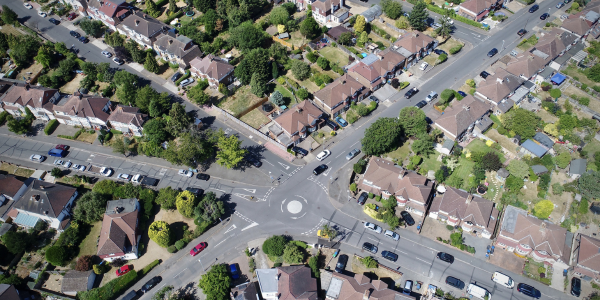In the UK, we’re all too familiar with rain, but when that drizzle turns into a downpour it can bring more than just soggy shoes. Flooding, whether from rain or a burst pipe indoors, can cause serious damage to your property.
With water damage being one of the most common and costly issues faced by homeowners and building managers, it’s important to know what steps to take for water damage prevention, so let’s take a look at how you can protect your property and prevent water damage.
Assess your flood risk
Before you can effectively protect your property, it’s essential to assess your flood risk. This involves understanding whether your property is located in a flood-prone area and the potential sources of water damage, both internal and external.
Check your area for flood risks, evaluate your property’s drainage system and consider the condition of your roof, windows and doors. By knowing the risks, you can take the right steps to prevent water from becoming a problem (before it even starts.)
Check for leaks
Inspect areas that are prone to leaks, like under sinks, around appliances and near your boiler for any signs of dampness, pooling water or mould growth. Small water leaks in your house can often go unnoticed, especially in less-used spaces, but over time even a minor drip can lead to major damage.
To stay ahead of potential issues, consider installing a water leak detector. These smart devices monitor the flow of water through a pipeline. When abnormal behaviour is detected, the system cuts off the water flow to the entire property, giving you time to act before the leak escalates into a costly repair.
If you suspect a leak but you can’t find it (even with the help of your water leak detector), consider employing a professional leak detection company to find your pesky hidden leak and fix it before it causes too much damage!
Know where the stopcock is
This might sound like obvious advice but is often overlooked. Knowing where and how to shut off your mains water supply is crucial in the event of an emergency. Familiarise yourself with its location – it can typically be found under the kitchen sink, in the utility room or near the front of your house.
If you ever experience a burst pipe, overflowing toilet or anything similar, acting fast can prevent major water damage, so as well as knowing where it’s located, it’s also a good idea to test the stopcock to ensure it turns smoothly.
Prevent pipes from freezing
As we approach the winter months, both interior and exterior pipes run the risk of freezing, so preventing your pipes from freezing is essential for effective water damage prevention. Insulate pipes in areas like the attic, garage or exterior walls. Pipe insulation is cheap and effective and helps prevent water damage from bursts caused by frozen pipes.
For those looking for a more high-tech option, a smart thermostat is a nifty piece of kit that allows you to keep a minimum temperature in your home controlled over the internet by your phone or another device. Setting your heating to a low temperature – even when you’re not home – keeps your house warm, preventing pipes from freezing.
How to block water from entering your house
To block water from entering your house, start by assessing your property’s drainage systems. Ensure that gutters are clean and clear from debris such as moss and weeds. Check for any gaps around windows and doors and use weather stripping or caulk to seal these entry points.
For areas prone to flooding, you may want to invest in a sump pump or flood barrier. Sump pumps are commonly found in homes with basements and play an important role in ensuring your basement won’t flood after long spells of rain, so it’s important to check it works.
The importance of insurance when it comes to water damage
The importance of insurance in the context of water damage can’t be overstated. Water related incidents such as flooding can lead to significant repair costs which may affect financial well being. Having the right insurance policy ensures that you’re covered for damages allowing you to recover more quickly.
With the right insurance you can protect not only your property but also peace of mind knowing that you have financial support in place when unexpected water damage strikes. Investing in comprehensive coverage tailored to your unique risks is a smart step to safeguarding your property.
How Nest GI can help
At Nest GI we specialise in offering non-standard insurance policies for flood-risk areas and properties with a history of flooding.
Get in contact with us today to speak with one of our expert advisors and discover a policy customised for you and your property.








